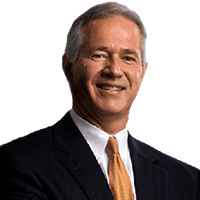 Royse City White Collar Crime Lawyers, Texas
Royse City White Collar Crime Lawyers, Texas
Sponsored Law Firm
-
 x
x

Click For More Info:
-
Noemi A. Collie, P.C.
1012 N. Bishop Ave. Dallas, TX 75208» view mapCriminal Defense Law Standing Up For Your Rights
We are the region's leading law firm, and have been for more than 20 years. Don't face a criminal charge alone.
800-930-8960
Sponsored Lawyers
1-8 of 8 matches
Criminal, Federal Appellate Practice, DUI-DWI, RICO Act, White Collar Crime
John R. Teakell has over 30 years experience in criminal law as both a prosecutor and criminal defense attorney. Those charged with serious crimes seek John Teakell out for legal counsel because of his deep criminal law subject matter experience and firsthand knowledge of state and criminal court procedures. Teakell began his career as an Assistant District Attorney and worked as a Senior Trial Counsel for the U.S. Securities and Exchange Commission where he prosecuted civil enforcement actions of fraudulent schemes in White Collar cases. Before going into criminal defense Mr. Teakell spent over 12 years in the U.S. Attorney’s Office as a federal prosecutor, most of which at the Northern District of Texas where he was designated as a bank fraud prosecutor. However, during this period Teakell also prosecuted all types of federal crimes in the Northern District of Texas including extraordinarily large drug trafficking and money laundering cases as an Assistant U.S. Attorney in the District of Puerto Rico, as well as federal death penalty cases. Today Mr. Teakell represents defendants in criminal cases throughout the State of Texas in federal and state courts, as well as cases in federal courts throughout the United States including Puerto Rico. As a criminal defense attorney and trial lawyer, Mr. Teakell has successfully defended those charged with violent crimes, drug manufacturing and distribution, and white-collar crimes including money laundering, bank fraud, securities fraud, and violations of federal securities law.
(more)


 Noemi Collie Dallas, TX
Noemi Collie Dallas, TX Practice AreasExpertise
Practice AreasExpertise


